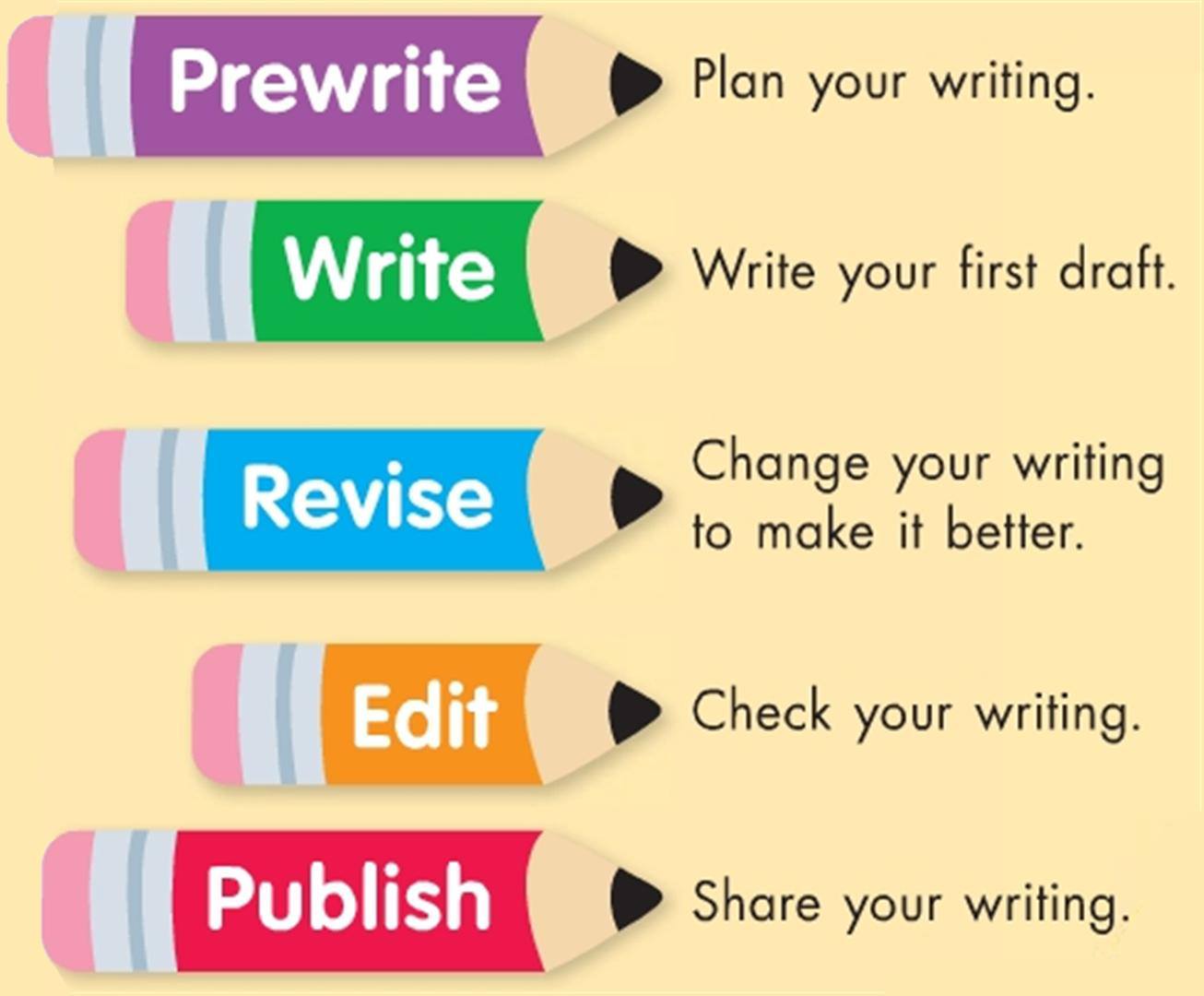
In the humanities or the arts (and sometimes in math and science), you might be asked to write an informal essay, one more exploratory and reflective, developing not 'top down,' by supporting a thesis with reasons and examples, but rather 'bottom up,' by starting with experiences and finding some storyline or trail of explanation. Joe Bloggs Steps of the Writing Process Step 1: Pre-Writing. Make sure you understand your assignment. Decide on a topic to write about. Consider who Step 2: Research (if Needed). List places where you can find information. Do your research Brainstorming, writing an outline, writing the body, creating a title—there are numerous steps one can use in the writing process! This paper will discuss the writing process I use personally. When I write a paper, I follow four main steps: brainstorming, writing a rough draft, revising, and composing a final draft
Essay Writing Help | Online Essay
The writing process is something that no two people do the same way. There is no "right way" or "wrong way" to write. It can be a very messy and fluid process, and the following is only a representation of commonly used steps. University Academic Support Centers. Search this unit Start search Submit Search. Secondary Sources Theses and Dissertations. Info for Prospective Students Current Students Alumni Degree Programs. Writing Guides. Academic Essays. The Writing Process. Steps of the Writing Process Step 1: Pre-Writing Think and Decide Make sure you understand your assignment. See Research Papers or Essays Decide on a topic to write about. See Narrow your Topic Consider who will read your work. See Audience and Voice Brainstorm ideas about the subject.
See Prewriting Strategies Step 2: Research if Needed Search List places where you can find information. Do your research. See Evaluating Sources and Primary vs. Secondary Sources Make an Outline to help organize your research. See Outlines Step 3: Drafting Write Put the information you researched into your own words. See Paraphrase and Summary Write sentences and paragraphs even if they are not perfect. Read what you have written and judge if it says what you mean. See Thesis Statements Write some more. See Incorporating References Read it again. Write some more.
Read it again. Write until you have said everything you want to say about the topic. Step 4: Revising Make it Better Read what you have written writing process essay. See Revising Content and Revising Organization Rearrange words, sentences or paragraphs. Take out or add parts. Do more research if you think you should. Replace overused or unclear words. Read your writing aloud to be sure it flows smoothly, writing process essay. Step 5: Editing and Proofreading Make it Correct Be sure all sentences are complete. See Editing and Proofreading Correct spelling, writing process essay, capitalization, and punctuation. Change words that are not used correctly or are writing process essay. Make sure you are using the appropriate Style formatting.
APA Formatting Chicago Style Formatting MLA Formatting Have someone else check your work, writing process essay.
How to Write a Process Essay
, time: 14:27The Writing Process essays
About Christine, Business Essay Writer. Christine is a seasoned Business Writer with over 4 years of experience of Business Writing blogger.com first point of a conclusion is to know your thesis statement. This is the main idea that you will present in your essay. This idea is what the essay is about, and if your conclusion is good it will be Apr 24, · The Writing Process | 5 Steps with Examples & Tips Step 1: Prewriting. Before you start writing, you need to decide exactly what you’ll write about and do the necessary Step 2: Planning and outlining. Especially in academic writing, it’s important to use a logical structure to convey Step 3: Estimated Reading Time: 9 mins In the humanities or the arts (and sometimes in math and science), you might be asked to write an informal essay, one more exploratory and reflective, developing not 'top down,' by supporting a thesis with reasons and examples, but rather 'bottom up,' by starting with experiences and finding some storyline or trail of explanation. Joe Bloggs
No comments:
Post a Comment